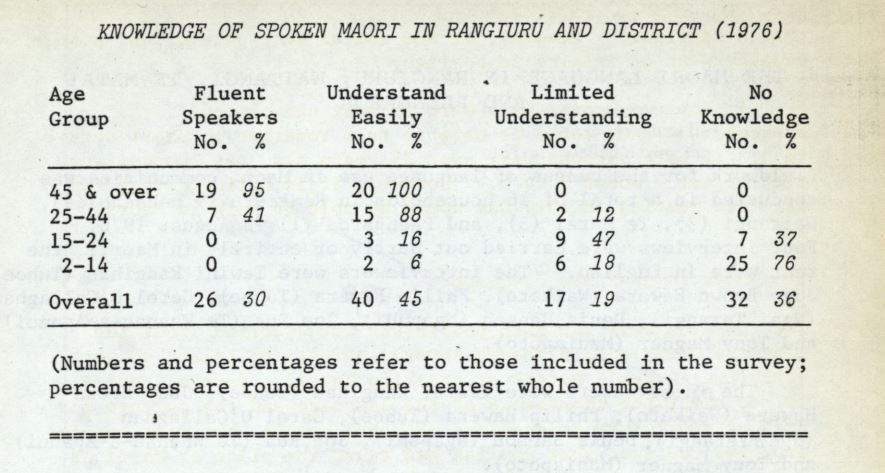-
Ngā Karere me Ngā Rauemi
News and Resources
Ngā Karere me Ngā Rauemi
News and Resources
-
Te Rangaihi Reo Māori
The Movement
Te Rangaihi Reo Māori
The Movement
-
Te Pae Kōrero
Our Community
Te Pae Kōrero
Our Community
-
Huihuinga
Events
Huihuinga
Events
-
Ngā Ara Ako
Learning Pathways
Ngā Ara Ako
Learning Pathways
-
SearchSearch
Search
Search

The kaumatua were the main people who were worried about the language dying out, although several parents we talked to were sorry they weren't better at speaking Maori. Several people talked about the importance of the language and the culture for present and future generations of Maori people, but most people accepted the fact that English had taken the place of Māori as the everyday language spoken in the area. While some people saw no point at all in the teaching of Maori in schools, and felt strongly that their children had to know English well to get a good job, other members of the community were trying to teach their grandchildren the language in the home. However, many of them felt that English was the main language spoken in the area, and that they could do little about it
Source: Read the full NZCER report here
Te Moana-ā-Toi | Bay of Plenty | Western Bay of Plenty | 1970-79 | Story is by tangata whenua
















Comments